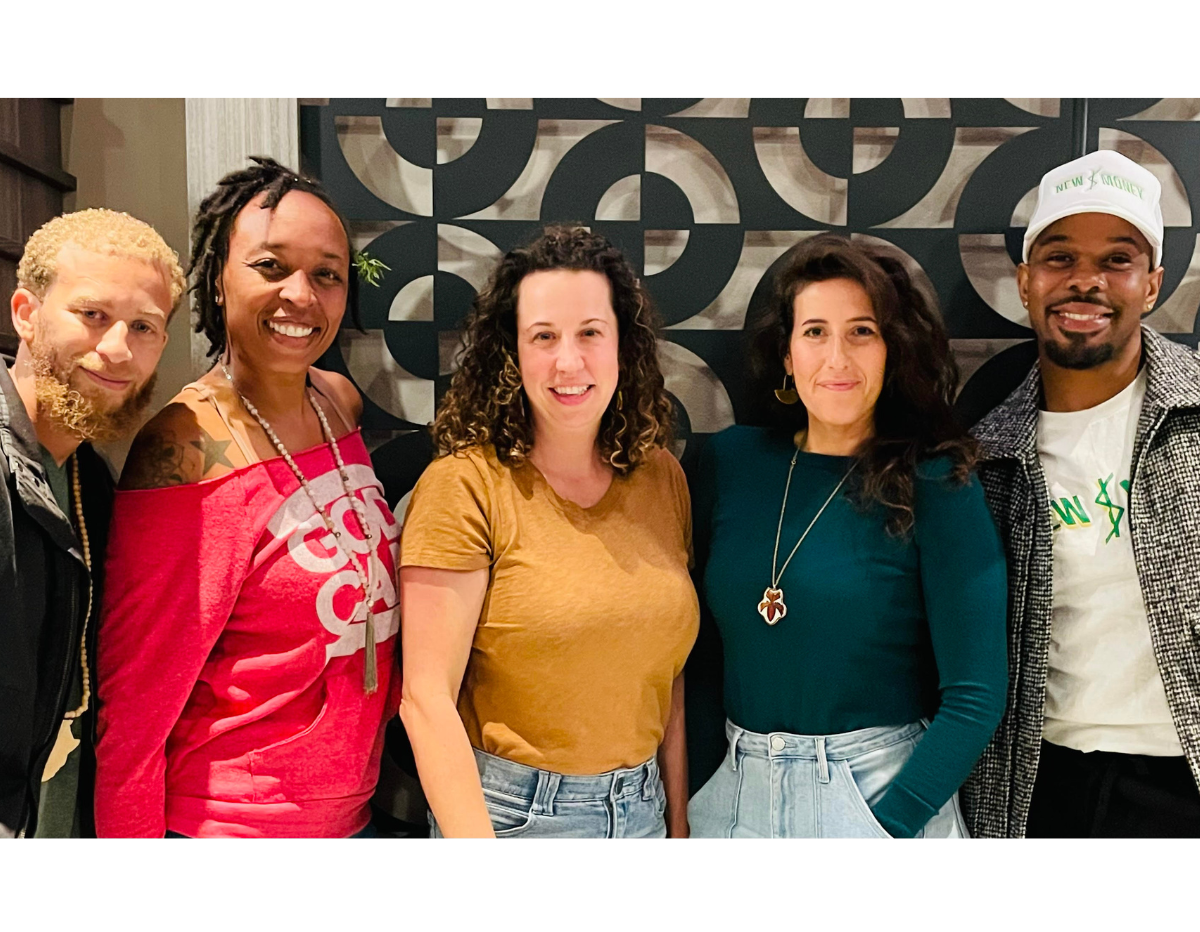
In New Orleans, where traditional responses to domestic and sexual violence often fall short, Beyond Harm is charting a different path. This small but powerful organization is expanding its programs to address violence and trauma. EJUSA will partner with Beyond Harm and accelerate their growth, providing funding and critical supports needed to help organizations like Beyond Harm thrive.
In 2022, after years working in traditional victim services, co-founders Eva Lessinger and Amanda Tonkovich recognized a critical gap in the system—the lack of real, structured support for those who cause harm, many of whom have experienced harm themselves—and launched Beyond Harm to fill it.
“We felt like there was this giant missing piece,” Eva explains. “After working with survivors over and over, we wanted to put that knowledge towards an upstream solution.”
Their approach challenges the reliance on punitive systems, offering alternatives that prioritize accountability and transformation—values that drive every aspect of their work.
“Survivors want their partners to change, to get help, to be better co-parents,” Amanda says. “But we weren’t getting at that by only serving survivors. Others need to be involved.”
Beyond Harm is a small team with just three full-time staff and they plan to bring on a fourth team member to expand their impact. Their work centers on group interventions, individual counseling and restorative processes for people who have committed domestic and sexual violence, creating paths to accountability while addressing both the trauma they’ve inflicted on others and their own trauma. Louisiana lacked a structured program like this, so they looked to national models.
“We see ourselves as a survivor service,” Eva says, “but also as part of building a new and better way outside of carceral systems.”
Their work intersects with criminal justice reform, offering pretrial intervention in partnership with the New Orleans District Attorney’s Office. Many survivors prefer a path where their partners complete the program and have their charges dropped.
“Most survivors don’t want their loved ones locked away,” Amanda says. “They want safety, accountability, and real change.”
In addition to their work with individuals, Beyond Harm is deeply involved in the community violence intervention (CVI) movement. They are committed to a vision of community safety that emphasizes prevention and healing over punishment.
“It’s a catch-22,” Amanda acknowledges. “We don’t believe jail is the answer, but some people wouldn’t make it to our program without that initial arrest.”
Recognizing their impact, EJUSA awarded Beyond Harm funding to expand their trauma counseling and restorative programming.
“Right now, it’s just the two of us doing all the counseling,” Eva explains. “Many participants need deeper individual work.”
This new position will also introduce somatic healing practices, a component of trauma recovery. “A lot of folks we work with have never had access to body-based healing,” Amanda says. “It’s not a cure-all, but it helps mitigate trauma symptoms.”
Somatic work is especially effective for PTSD survivors because trauma is often stored in the body, manifesting as physical symptoms like chronic pain, tension, or emotional dysregulation. By incorporating movement, breathwork, and embodied healing techniques, this approach helps participants process and manage their trauma more effectively. As a result, the new staff member will be better equipped to support PTSD survivors in their healing journey.
With over half their participants likely qualifying for PTSD diagnoses, this expansion is critical. The new staff member will provide much-needed individual counseling, lead a women’s program, and develop culturally relevant interventions for LGBTQ individuals.
“This position helps us fill gaps and respond more holistically to our community,” Eva says. “It’s about building the support system that survivors have been asking for all along.”
For Eva and Amanda, Beyond Harm is about more than addressing violence—it’s about transformation.
“We hope to build a future where the criminal legal system isn’t necessary for people to want to change,” Eva says. And with every step forward, they are making that future a little more possible.



